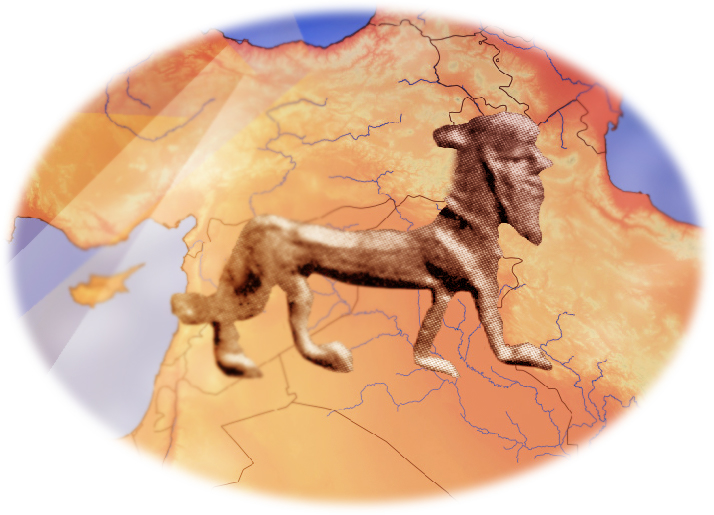More pictures can be found at the project's page Tell Derabun.
After a delay caused by the Corona pandemic, it has been possible to start an excavation project in Kurdistan-Iraq in September/October 2022. The choice fell on the site of Tell Derabun in the province of Zakho in the very north of Iraq. This is a settlement mound of about 2.5ha at the lower reaches of the eastern Habur, a tributary of the Tigris. Several surveys at this site have suggested a long history of settlement from the 3rd millennium BC to Islamic times. This region on the northern periphery of Mesopotamia is still largely unexplored archaeologically. Through our investigations, we hope to be able to connect the neighbouring areas in the west (Syrian Jezirah) and southeast (Assyrian heartland), which have already been relatively well researched archaeologically, better than has been possible so far, and to better understand their relationships.

Fig.1
In September, the excavation licence was signed in Erbil, the capital of the Kurdish autonomous region in Iraq. Then, from September 24th to October 14th, a first campaign took place on Tell Derabun. In addition to the project leader, seven students of Near Eastern archaeology from Mainz participated (Fig. *1), as well as Muhammad al-Yusifi, head of the antiquities administration of Zakho, and Assad Abbas from the antiquities administration in Erbil from the Kurdish side. With the help of 15 local workers, a total of 5 test trenches were made on the southern slope of the tell. The cooperation with the Kurdish colleagues on site as well as the accommodation in a house rented in Zakho went smoothly.
The vast majority of the layers uncovered in these sections date from the Ottoman period (17th-19th centuries). For the most part, only pits and rubble layers could be recorded; in one section, however, remains of several houses from this period were also uncovered. In the lowest section, however, several phases of a building from the Hellenistic period were found under these layers, some with massive stone foundations. In one pit a bronze statuette was found, probably imported from the Roman area, depicting a naked hero of the Farnesian Heracles type (Fig.*2). Individual finds (pottery and a brooch, Fig. *3) from the Hellenistic layers already date to the Neo-Assyrian period (8th/7th century BC) and now also prove settlement in this period through excavations.

Fig. 2 and Fig. 3
Despite the very short time available, the archaeological potential of the site was clearly confirmed. In 2023, the excavations are to be continued with another (longer) campaign. The work will concentrate on the Hellenistic and pre-Hellenistic layers.
Fig. 1: The Mainz members of the excavation team during a field trip to the Assyrian aqueduct of Jerwan (Photo: Emma Emine Sakal).
Fig. 2: Bronze figure (DRB22-7038-M-001) from Tell Derabun (Photo: Emma Emine Sakal).
Fig. 3: 8th/7th century bow brooch (DRB22-7034-M-005) from Tell Derabun (Photo: Emma Emine Sakal).










